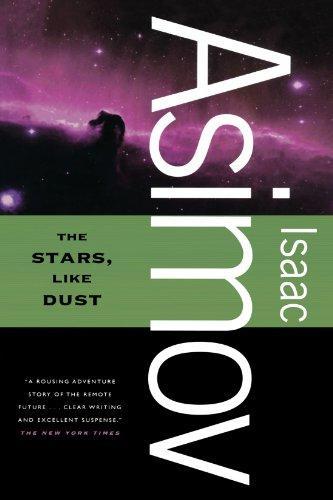lingua English
Pubblicato il 29 Settembre 2009

lingua English
Pubblicato il 29 Settembre 2009
The Stars, Like Dust is a 1951 science fiction mystery book by American writer Isaac Asimov. The book is part of Asimov's Galactic Empire series and takes place before the actual founding of the Galactic Empire, before even Trantor becomes important. It starts with a young man attending the University of Earth. Biron Farrill is the son of the greatest nobleman on the planet Nephelos, one of the Nebula Kingdoms. The story starts with the news that his father has been caught conspiring against the Tyranni. The Tyranni, who come from the planet Tyrann, rule a minor empire of 50 planets near the Horsehead Nebula. Tyrann suppressed science and space navigation training in the kingdoms to help maintain control over its subject worlds. The ruler of Tyrann in the story is called the "Khan," suggesting that Asimov took the Mongol dominion over the Russian principalities as a model, much as …
The Stars, Like Dust is a 1951 science fiction mystery book by American writer Isaac Asimov. The book is part of Asimov's Galactic Empire series and takes place before the actual founding of the Galactic Empire, before even Trantor becomes important. It starts with a young man attending the University of Earth. Biron Farrill is the son of the greatest nobleman on the planet Nephelos, one of the Nebula Kingdoms. The story starts with the news that his father has been caught conspiring against the Tyranni. The Tyranni, who come from the planet Tyrann, rule a minor empire of 50 planets near the Horsehead Nebula. Tyrann suppressed science and space navigation training in the kingdoms to help maintain control over its subject worlds. The ruler of Tyrann in the story is called the "Khan," suggesting that Asimov took the Mongol dominion over the Russian principalities as a model, much as he used the declining Roman Empire for his Foundation series. (See the "Golden Horde" for the real-world history that Asimov drew upon and adapted.) Asimov once called it his "least favorite novel."